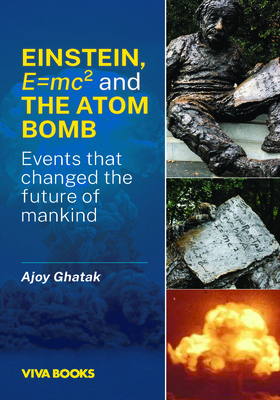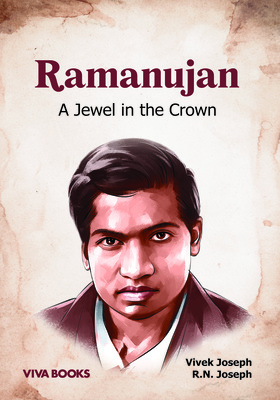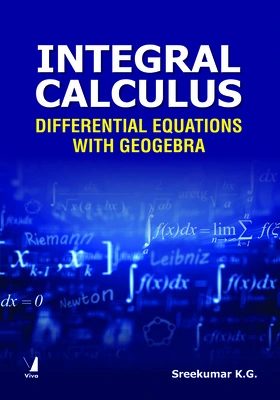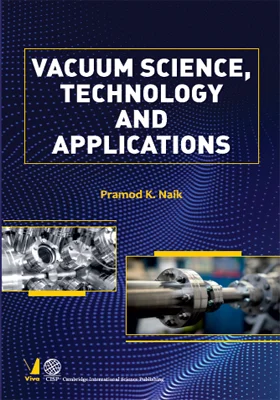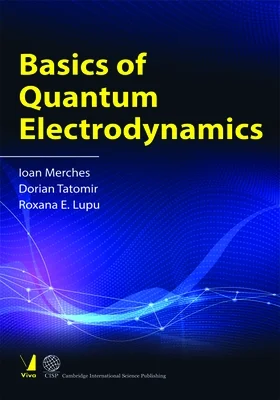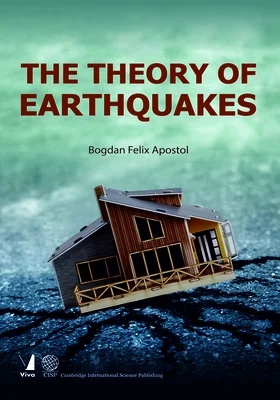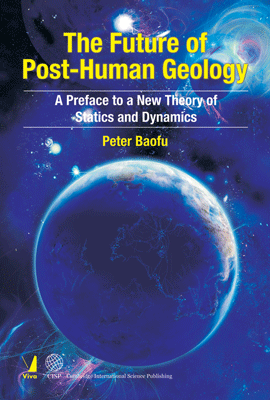
The Future of Post-Human Geology
The Future of Post-Human Geology
A Preface to a New Theory of Statics and Dynamics
₹1,255.50 ₹1,395.00 Save: ₹139.50 (10%)
Go to cartISBN: 9788130919966
Bind: Hardbound
Year: 2012
Pages: 480
Size: 153 x 229 mm
Publisher: Cambridge International Science Publishing
Published in India by: Viva Books
Exclusive Distributors: Viva Books
Sales Territory: India, Nepal, Pakistan, Bangladesh, Sri Lanka
Description:
Is the history of geology really so metaphorical in its foundation, according to some critics like Stephen Jay Gould, that "what underlies the discovery of deep time is by no means fieldwork, as the myths of geology textbooks would have us believe"? (F. Sulloway 1987)
This revisionist account by the critics like Gould can be contrasted by an opposing view in the older days, when Charles Lyell, for example, "portrayed the previous history of his discipline as a gradual overcoming of primitive superstitions, wild speculations, and biblical allegiances. In doing so he created his own legend..., as an archempiricist free of all bias and preconception." (F. Sulloway 1987)
Contrary to these two opposing views (and others as discussed in the book), the history of geology is neither so metaphorical nor so empirical to the extent that the respective defenders would like us to believe. But this rejection of the two views in contention does not logically follow that geology is therefore not worth studying, or that it is useless. Neither to say, neither of these two extreme views is reasonable either.
Instead, this book offers an alternative (better) way to understand the future of geology, especially in the context of statics and dynamics — while learning from different approaches in the literature but without favoring any one of them (nor integrating them, since they are not necessarily compatible with each other). Thus, this book offers a new theory to go beyond the existing approaches in the literature on geology in an original way.
If successful, this seminal project is to fundamentally change the way that we think about geology, from the combined perspectives of the mind, nature, society, and culture, with enormous implications for the human future and what I originally called its "post-human" fate.
In this book:
- Introduction-The Use of Geology
- Statics and Its Contingency
- Dynamics and Its Restriction
- Conclusion- The Future of Geology
Contents:
List of Tables • Acknowledgments • List of Abbreviations
Part One: Introduction • Chapter One: Introduction—The Use of Geology • Two Views in Contention • Geology and Geosciences • Statics and Dynamics in Geology • The Wide Variety of Geological Methods • The Theoretical Debate • The Resettlement Theory of Geology • Theory and Meta-Theory • The Logic of Existential Dialectics • Sophisticated Methodological Holism • Chapter Outline • Some Clarifications
Part Two: Statics • Chapter Two: Statics and Its Contingency • The Durability of Statics • Statics and the Mind • Statics and Nature • Statics and Society • Statics and Culture • The Changeability of Statics • The Future of Post-Human Geology
Part Three: Dynamics • Chapter Three: Dynamics and Its Restriction • The Strength of Dynamics • Dynamics and the Mind • Dynamics and Nature • Dynamics and Society • Dynamics and Culture • The Weakness of Dynamics
Part Four: Conclusion • Chapter Four: Conclusion—The Future of Geology • Beyond Uniformity, Catastrophe, and Revision ?1st Thesis: The Absoluteness-Relativeness Principle • 2nd Thesis: The Predictability-Unpredictability Principle • 3rd Thesis: The Explicability-Inexplicability Principle • 4th Thesis: The Preciseness-Vagueness Principle • 5th Thesis: The Simpleness-Complicatedness Principle • 6th Thesis: The Openness-Hiddenness Principle • 7th Thesis: The Denseness-Emptiness Principle • 8th Thesis: The Slowness-Quickness Principle • 9th Thesis: The Expansion-Contraction Principle • 10th Thesis: The Theory-Praxis Principle • 11th Thesis: The Convention-Novelty Principle • 12th Thesis: The Evolution-Transformation Principle • 13th Thesis: The Symmetry-Asymmetry Principle • 14th Thesis: The Regression-Progression Principle • 15th Thesis: The Sameness-Difference Principle • 16th Thesis: The Post-Human Resettlement • Beyond Earth Geology
Bibliography • Index
About the Author:
Dr Peter Baofu is the author of 53 new theories in 44 books to provide a visionary challenge to conventional wisdom in all fields of knowledge ranging from the social sciences through the formal sciences and the natural sciences to the humanities, with the final aim for a unified theory of everything.
He is known for his pioneering works on "multilateral acoustics," "metamorphic humor," "heterodox education," "post-human mind games," "post-Earth geology," "substitutive religion," "post-cosmology," "contrarian personality," "post-ethics," "multifaceted war and peace," "post-humanity," "critical-dialectic formal science," "combinational organization," "hyper-sexual body," "law reconstruction," "comprehensive creative thinking," "hyper-martial body," "multilogical learning," "contingent urban planning," "post-capitalism," "selective geometry," "post-democracy," "contrastive advantages," "ambivalent technology," "authoritarian liberal democracy," "the post-post-Cold-War era," "post-civilization," "transformative aesthetic experience," "synthetic information architecture," "contrastive mathematical logic," "dialectic complexity," "after-postmodernity," "sophisticated methodological holism," "post-human space-time," "existential dialectics," "unfolding unconsciousness," "floating consciousness," "hyper-spatial consciousness," and other visions.
Dr Baofu earned an entry to the list of "prominent and emerging writers" in Contemporary Authors (2005) and another honorary entry in The Writers Directory (2007- and was also interviewed on television and in newspapers about his original ideas. He was a U.S. Fulbright Scholar in the Far East. He had taught as a professor at different universities in Western Europe, the Caucasus, the Middle East, the Balkans, Central Asia, South Asia, and North America. He finished more than 5 academic degrees, including a Ph.D. from the world-renowned M.I.T., and was a summa cum laude graduate.
Contents:
List of Tables • Acknowledgments • List of Abbreviations
Part One: Introduction • Chapter One: Introduction—The Use of Geology • Two Views in Contention • Geology and Geosciences • Statics and Dynamics in Geology • The Wide Variety of Geological Methods • The Theoretical Debate • The Resettlement Theory of Geology • Theory and Meta-Theory • The Logic of Existential Dialectics • Sophisticated Methodological Holism • Chapter Outline • Some Clarifications
Part Two: Statics • Chapter Two: Statics and Its Contingency • The Durability of Statics • Statics and the Mind • Statics and Nature • Statics and Society • Statics and Culture • The Changeability of Statics • The Future of Post-Human Geology
Part Three: Dynamics • Chapter Three: Dynamics and Its Restriction • The Strength of Dynamics • Dynamics and the Mind • Dynamics and Nature • Dynamics and Society • Dynamics and Culture • The Weakness of Dynamics
Part Four: Conclusion • Chapter Four: Conclusion—The Future of Geology • Beyond Uniformity, Catastrophe, and Revision ?1st Thesis: The Absoluteness-Relativeness Principle • 2nd Thesis: The Predictability-Unpredictability Principle • 3rd Thesis: The Explicability-Inexplicability Principle • 4th Thesis: The Preciseness-Vagueness Principle • 5th Thesis: The Simpleness-Complicatedness Principle • 6th Thesis: The Openness-Hiddenness Principle • 7th Thesis: The Denseness-Emptiness Principle • 8th Thesis: The Slowness-Quickness Principle • 9th Thesis: The Expansion-Contraction Principle • 10th Thesis: The Theory-Praxis Principle • 11th Thesis: The Convention-Novelty Principle • 12th Thesis: The Evolution-Transformation Principle • 13th Thesis: The Symmetry-Asymmetry Principle • 14th Thesis: The Regression-Progression Principle • 15th Thesis: The Sameness-Difference Principle • 16th Thesis: The Post-Human Resettlement • Beyond Earth Geology
Bibliography • Index
About the Author:
Dr Peter Baofu is the author of 53 new theories in 44 books to provide a visionary challenge to conventional wisdom in all fields of knowledge ranging from the social sciences through the formal sciences and the natural sciences to the humanities, with the final aim for a unified theory of everything.
He is known for his pioneering works on "multilateral acoustics," "metamorphic humor," "heterodox education," "post-human mind games," "post-Earth geology," "substitutive religion," "post-cosmology," "contrarian personality," "post-ethics," "multifaceted war and peace," "post-humanity," "critical-dialectic formal science," "combinational organization," "hyper-sexual body," "law reconstruction," "comprehensive creative thinking," "hyper-martial body," "multilogical learning," "contingent urban planning," "post-capitalism," "selective geometry," "post-democracy," "contrastive advantages," "ambivalent technology," "authoritarian liberal democracy," "the post-post-Cold-War era," "post-civilization," "transformative aesthetic experience," "synthetic information architecture," "contrastive mathematical logic," "dialectic complexity," "after-postmodernity," "sophisticated methodological holism," "post-human space-time," "existential dialectics," "unfolding unconsciousness," "floating consciousness," "hyper-spatial consciousness," and other visions.
Dr Baofu earned an entry to the list of "prominent and emerging writers" in Contemporary Authors (2005) and another honorary entry in The Writers Directory (2007- and was also interviewed on television and in newspapers about his original ideas. He was a U.S. Fulbright Scholar in the Far East. He had taught as a professor at different universities in Western Europe, the Caucasus, the Middle East, the Balkans, Central Asia, South Asia, and North America. He finished more than 5 academic degrees, including a Ph.D. from the world-renowned M.I.T., and was a summa cum laude graduate.
